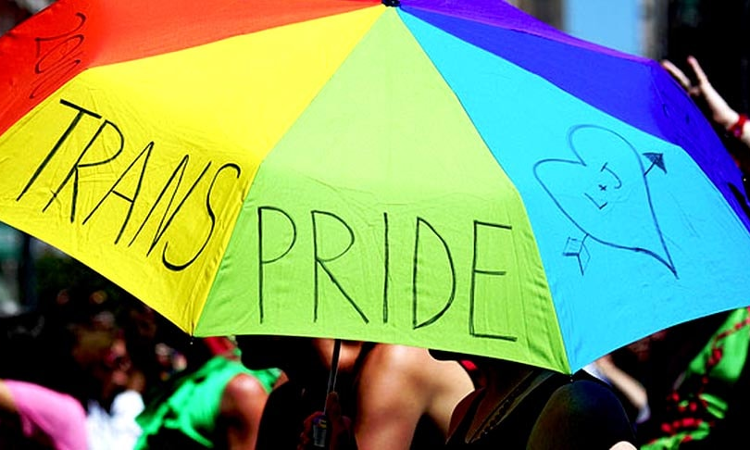- Home
- /
- High Courts
- /
- Andhra Pradesh High Court
- /
- Expect State To Take 'Positive...
Expect State To Take 'Positive Decision' On Giving Reservation To Transgender Persons In Public Employment: AP High Court
Saahas Arora
3 Nov 2025 12:30 PM IST
The Andhra Pradesh High Court has said that it expects the State Government to come up with a positive decision with respect to introducing reservations for transgender persons in public employment.A Division Bench of Justice Battu Devanand and Justice A. Hari Haranadha Sarma was informed about that Karnataka government had as per the direction of the High Court of Karnataka, provided...
The Andhra Pradesh High Court has said that it expects the State Government to come up with a positive decision with respect to introducing reservations for transgender persons in public employment.
A Division Bench of Justice Battu Devanand and Justice A. Hari Haranadha Sarma was informed about that Karnataka government had as per the direction of the High Court of Karnataka, provided special reservation to the transgender persons in public employment
The Additional Advocate General requested time to place the issue before the State Government to examine the feasibility to provide special reservation to the transgender in the public employment taking into consideration the decision of the Government of Karnataka in a proper perspective.
The court thus said:
“… this Court expects that the State Government will come with a positive decision after examining the policy of the Karnataka Government to extend 1% horizontal reservation to the transgender in the public employment at an early date. Accordingly, to enable the State Government to place its stand/decision on this aspect before this Court, post on 24.11.2025”
Background
The Court was hearing a transgender person's appeal against a single judge's order which had upheld a state government notification which excluded transgender persons from Sub-Inspector recruitment.
The appellant had first moved the single judge in a writ petition claiming that the notification violates Articles 14, 15, 19, 21 of the Constitution and was contrary to the law declared in NALSA v. Union of India and others (2014) where the Supreme Court had declared that transgender persons must be legally recognised as the “third gender” with the right to self-identify their gender,
The Supreme Court had in NALSA judgment directed the Centre and State Governments to take steps to treat them as Socially and Educationally Backward Classes (SEBCs) and extend all kinds of reservation in cases of admission in educational institutions and public appointments.
The Single-Judge had upheld the constitutional validity of the notification on the ground that in NALSA judgment the direction issued to the Centre and State Governments to take steps to treat transgender persons as SEBCs was limited to treating transgender persons as SEBCs and not for reserving a particular percentage of posts to transgenders.
The Single-Judge further opined that post NALSA, the Transgender Persons (Protection of Rights) Act, 2019 was enacted and Rules were framed thereunder, but the same did not provide for any reservation to transgenders, except providing access to employment. The Court had also held that failure of State to take steps to provide reservation may attract contempt, but the same cannot compel the Court to declare the notification illegal or arbitrary.
Against this the appellant moved the division bench.
It was the case of the appellant that the Supreme Court's judgement in NALSA was not considered in its proper perspective, and, unlike the Karnataka Government, no steps have been taken by the Andhra Pradesh Government to address the problems faced by transgenders in public employment.
On the contrary, the State submitted that prior to the order of the Single-Judge, the State Government had formulated a policy on the aspect of reservation or specific recognition of transgenders in public employment, and appropriate steps were being taken to implement the directions issued by the Supreme Court in NALSA.
The matter is now listed on November 24.
Case Title: Matam Gangabhavani v. State of Andhra Pradesh and Anr
W.A.No.547 of 2022



